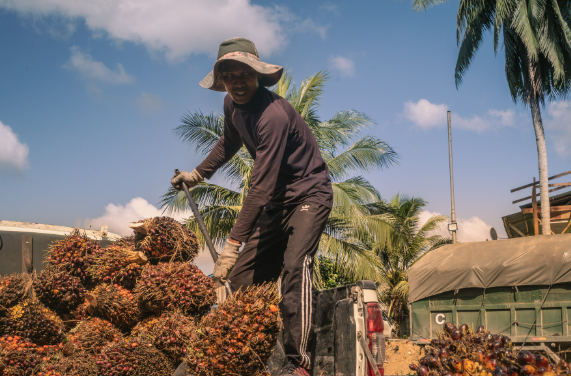Weather-Driven Challenges
The heavy rains have severely disrupted harvesting operations, especially in key production regions such as Sabah and Sarawak. Flooded plantations and waterlogged roads have hindered workers’ ability to collect fresh fruit bunches, leading to delays in processing and transportation.
- Production Decline: MPOB predicts a 15–20% drop in crude palm oil (CPO) output for December compared to earlier months.
- Quality Concerns: Prolonged exposure of harvested fruits to excessive moisture compromises the quality of the extracted oil, further affecting market supply.

Global Implications
Malaysia plays a pivotal role in the global palm oil market, supplying this essential commodity for diverse industries, from food and cosmetics to biofuels. Any disruption in production has far-reaching consequences.
- Price Surge: The reduced supply has already triggered an increase in global palm oil prices. Analysts anticipate continued volatility as buyers compete for limited stocks.
- Supply Chain Disruption: Import-dependent countries such as India, China, and many European nations could face delays or inflated costs due to supply constraints.

Environmental and Economic Impact
The heavy rains bring to light broader environmental challenges linked to climate change. Unpredictable weather patterns are becoming a persistent issue, impacting agricultural output and raising questions about sustainability.
- Economic Strain: Smallholder farmers, who form the backbone of Malaysia's palm oil industry, are particularly vulnerable. Reduced yields translate to lower incomes, threatening their livelihoods.
- Environmental Recovery: Excessive water retention in plantations could lead to soil erosion and long-term degradation of arable land, compounding the challenges faced by farmers and producers.

Industry Response
Stakeholders in the palm oil industry are adopting measures to mitigate the effects of heavy rains and ensure long-term sustainability:
- Drainage Improvements: Enhanced drainage systems are being implemented in plantations to better manage excess rainfall and prevent flooding.
- Crop Insurance: Farmers are being encouraged to adopt insurance schemes to protect against climate-induced losses.
- Resilient Varieties: Research and investment in developing more resilient palm oil crops that can withstand extreme weather conditions are gaining traction.
What Lies Ahead?
The recent rainfall serves as a wake-up call for Malaysia's palm oil industry to adapt to the changing climate. While the immediate focus is on mitigating losses, the long-term strategy must include resilience and sustainability to secure the future of this vital sector.
As the global demand for palm oil remains strong, Malaysia's response to these challenges could set an example for other producing nations. By embracing innovation and sustainable practices, the industry can navigate environmental challenges and continue to thrive on the global stage.
Subscribe to us:
